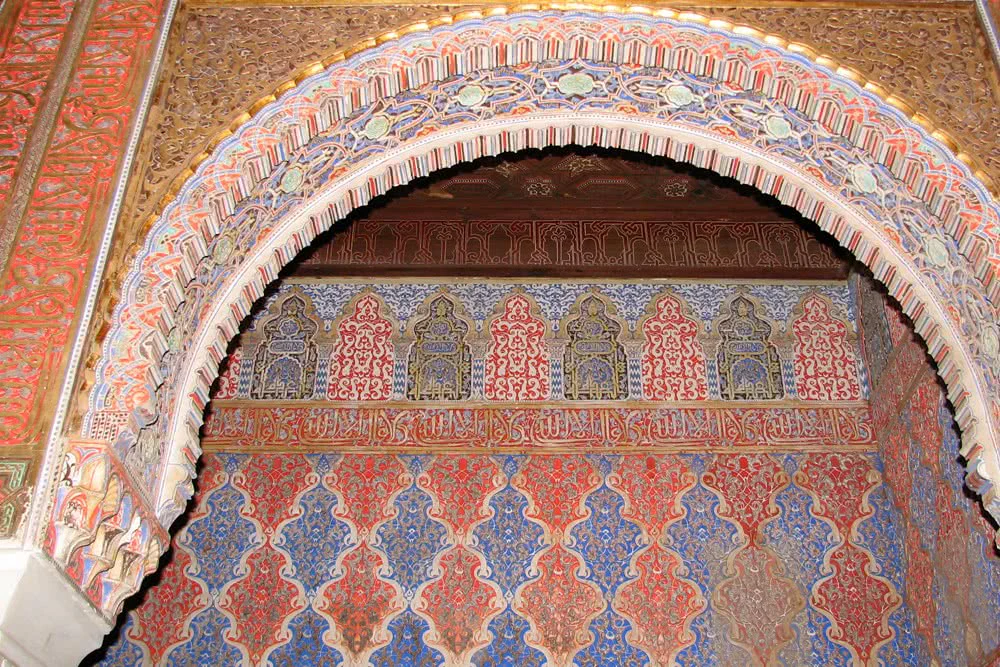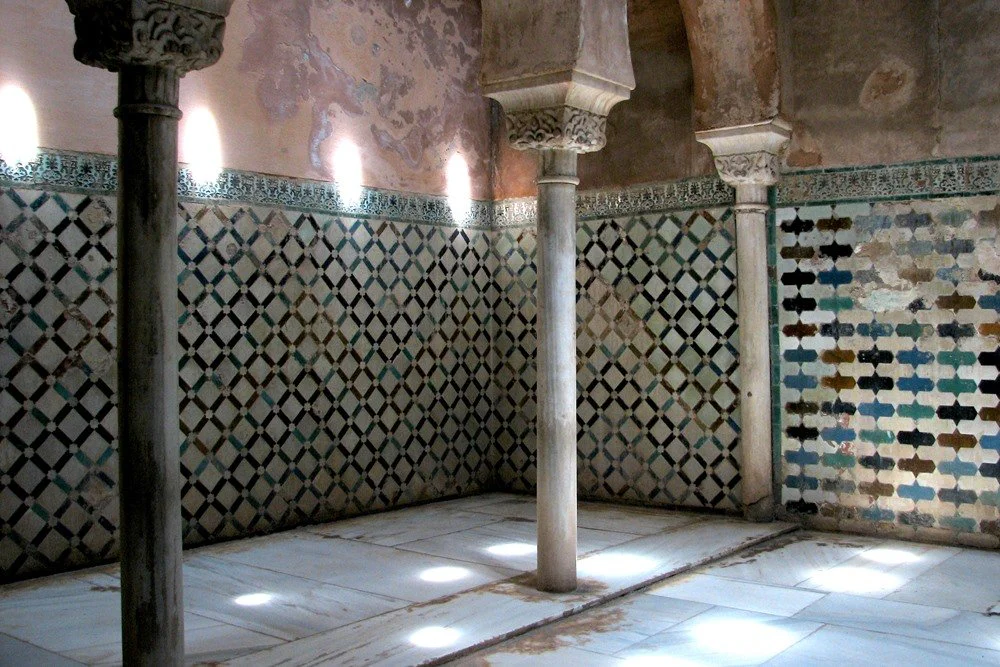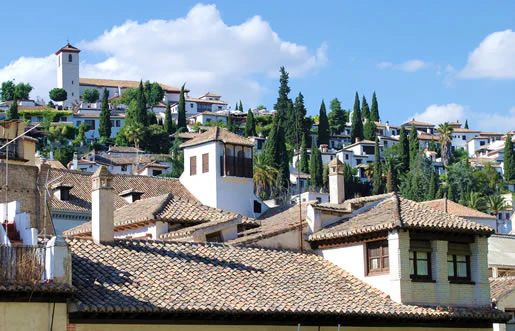Baths
The Baths (Baños) were built to the east of the Comares Palace (Palacio de Comares), following the model of Roman thermal baths. The Hall of the Beds (Sala de las Camas), the first chamber that you will find when you enter the baths, would be the «apoditerium», where people undressed before going into the bath. The «apoditerium» has a square space in the middle, delimited by columns, with a fountain inside it and galleries surrounding it. There is also a space open towards the first floor, from the gallery of which the king was said to look at his naked wives and then to throw an apple to the one he had chosen to spend the night with. On the sides are two beds to rest on after the bath, with coloured tiles. All the decoration that remains is from the Christian period, because the baths have often been in a bad state of repair since they were built and they have therefore been restored and rebuilt several times.
On the first floor there is a small hall with a Mudejar style interlacing structure and its arches show inscriptions and decorations from the 15th century.
The other halls are quite simple, without decoration on the walls, with marble paving, simple tile skirting boards, horseshoe arches without decoration and vaults with star-shaped skylights, which were once closed with stained glass and were used to light the chamber.
The next chamber is the «frigidarium», or cold chamber. In Arab baths there is a cold water basin, instead of a swimming pool like in Roman thermal baths. The central hall is the «tepidarium» or warm hall, which is connected with the other halls by arches. Finally there is the «caldarium» or steam hall, which was the hot hall of the bath. Inside this hall there was a copper boiler where water was first heated and later taken by through underground galleries in order to heat these chambers. The pipe through which hot water came out can still be seen in a niche with tiles. From this hall people had to go back to the «apoditerium» using the same way. The result was a bath with a very agreeable temperature gradation. In fact, the layout of the Alhambra's bath was not unique, but rather similar to other Arab baths.
Read more about...




